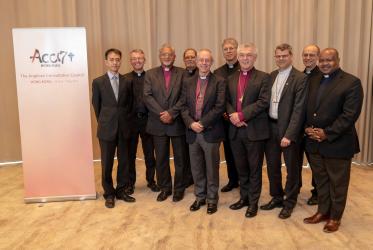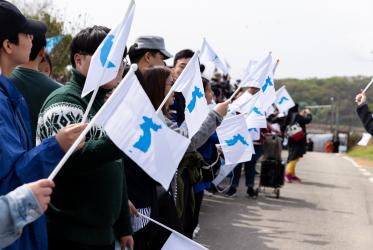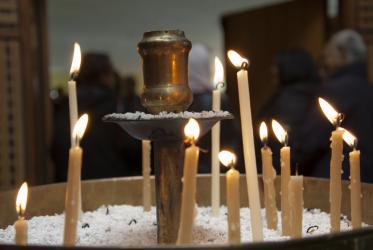Displaying 141 - 160 of 409
Peacemakers at work in Sri Lanka
29 April 2019
WCC condemns massacre of farmers in Philippines
12 April 2019
Church in Bali empowers youth to break cycle of poverty
18 March 2019
Peace is common denominator of all major religions
05 March 2019







